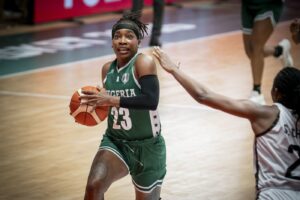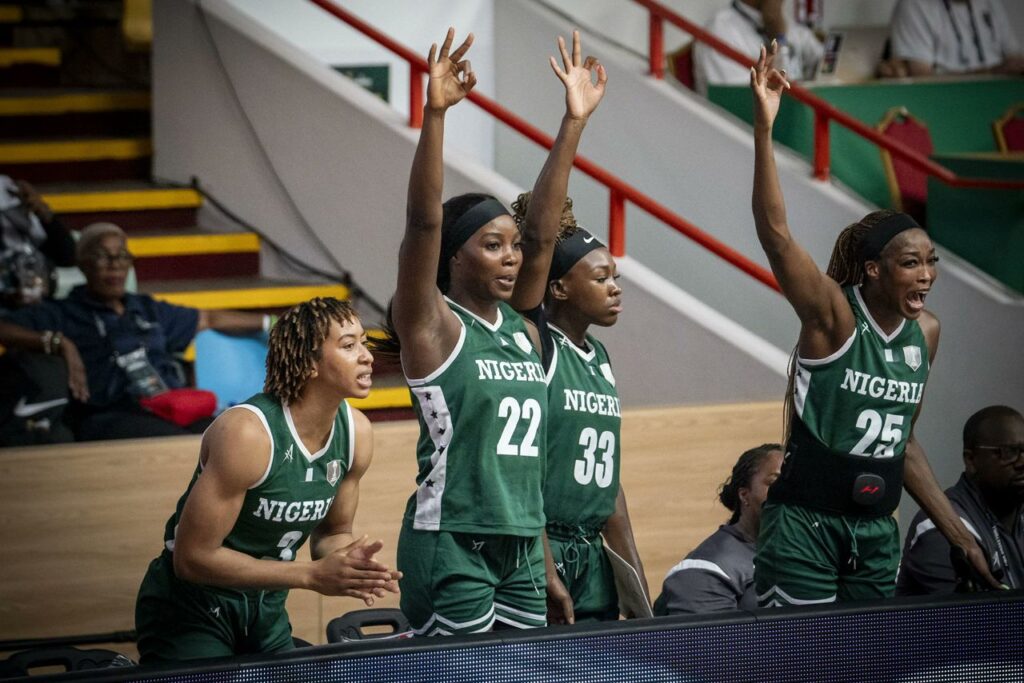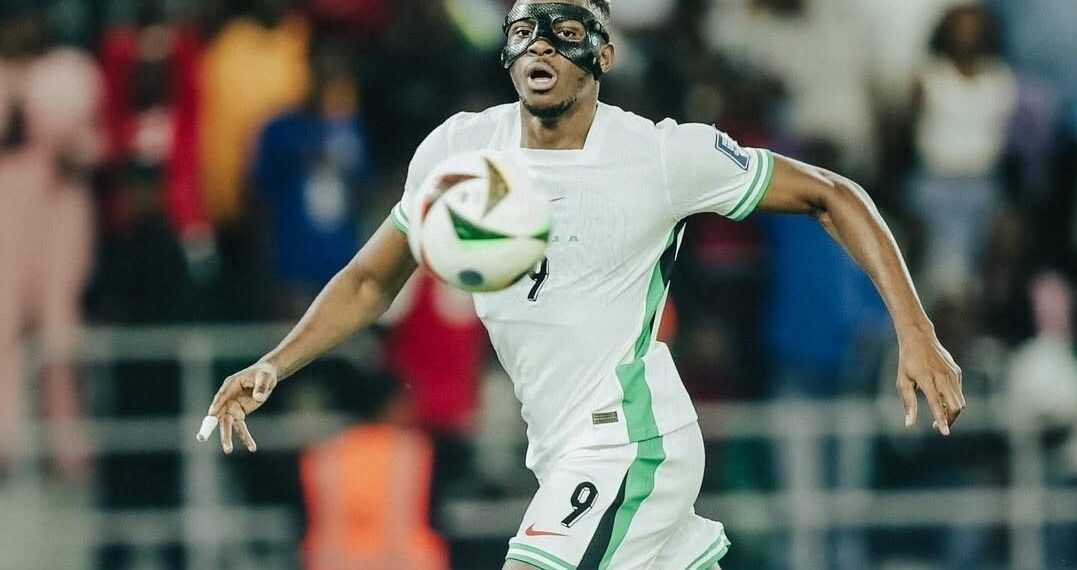Across Lagos, Abuja, and bustling viewing centers from Accra to Port Harcourt, fans of Nigerian basketball were glued to their screens on Monday night as the national women’s team, D’Tigress, showcased thrilling resilience yet again. Facing a determined Mozambique side in their final Group D clash at the 2025 FIBA Women’s AfroBasket in Abidjan, Ivory Coast, Nigeria prevailed in a tense 60–55 battle—further cementing their continental dominance.
In what will surely go down as one of the more dramatic games of the tournament, D’Tigress had to dig deep, overturning deficits on multiple occasions. Their victory not only sealed the top spot in Group D but also marked their 26th consecutive AfroBasket win—a streak unmatched by any other country in the event’s recent history, having started in 2017 when a new era of Nigerian women’s basketball began.
Kalu: “We Have a Target on Our Back – We’re the Queens of Africa”
Ezinne Kalu, star guard for D’Tigress and often called one of Africa’s finest basketball exports, expressed her delight after the final whistle. “We know everyone is gunning for us,” she told reporters post-match, “We have a target on our back because we’re the queens of Africa. Every team we face wants to end our streak, but that just pushes us to work harder.” Her words echoed the pressure—and the pride—that comes with being four-time defending champions.
“It means a lot, for sure. It definitely wasn’t an easy road. We have a target on our back, which as we should, because we’re the Queens of Africa,” Ezinne Kalu said after the huge win.
“But I’m happy that we stay poised in adversity and we continue to fight no matter who we play against.”
“It’s not easy. Afrobasket is not easy. There’s so many talented individuals here, so many talented teams here.”
“It’s about just staying together, having a sisterhood, staying together inside the locker room, staying committed, staying as one, and then when we step out on the court, we just try to handle business.”

Mozambique Gave Us A Punch in the Face – Coach Wakama Admits
Throughout the first two quarters, Mozambique refused to back down—cheered on by a capacity crowd in Abidjan. The Southern Africans led 28–24 at the break, stretching their advantage to as much as 11 points in the third quarter. It was clear to all—on court and in living rooms across Nigeria—that this would not be an easy win for D’Tigress.
Coach Rena Wakama, the first Nigerian woman to coach the senior team, acknowledged the opponents’ impressive start. “Mozambique gave us a punch in the face,” she admitted during her post-game interview aired on SuperSport. “But our response was what mattered. At halftime, I reminded the girls of who we are, what this jersey means, and the legacy we’re defending.”
According to Coach Wakama, the pep talk in the locker room was all about calm, focus, and pride. “The girls know what’s at stake—not just for themselves, but for every young girl watching. These are the moments they will remember, and they delivered.”
“Huge credit to Mozambique. They came out and they punched us in the face,” Wakama said post-game.
“They’re a very well-coached team. They play extremely hard. I’m proud of my team, though, for overcoming.”
“It wasn’t our shooting night. It happens. I challenged my team to dig deep and make sure that we come out on top. And they did that.”
How It Happened: Quarter-by-Quarter Drama
-
First Quarter: Mozambique started strong, their energy pushing them to a four-point lead, leaving Nigerian supporters anxiously awaiting a D’Tigress response.
-
Second Quarter: Sparked by Murjanatu Musa’s powerful inside play, Nigeria briefly edged ahead 22–20. However, Mozambique’s patient offense and timely three-point shooting restored their halftime edge, 28–24.
-
Third Quarter: D’Tigress faced a daunting 11-point deficit before rallying near the end of the period. The turnaround was fueled by stifling defense and improved rebounding.
-
Fourth Quarter: Champions rise in the clutch, and that’s exactly what Nigeria did. Executing crisp offensive sets and dominating the glass, they closed the game on top, sealing the nerve-jangling encounter 60–55.
D’Tigress March On: What’s Next
With their second win from as many matches in Group D, Nigeria confirmed their status as group leaders and set up what promises to be another high-stakes quarterfinal. Their next opponent will be determined shortly, but the team—and indeed the nation—has its sights set on an unprecedented fifth straight AfroBasket championship, a feat that would place D’Tigress among the greatest dynasties in African sport.
Since 2017, Nigeria’s run at AfroBasket has been nothing short of historic. Their current 26-game winning streak stands as a daunting record across the continent. No other team currently participating can boast a similar run of consistent excellence, underscoring Nigeria’s evolution from hopeful underdogs to continental juggernauts.
STAT WATCH: Key Contributors
-
Murjanatu Musa: Consistently provided points and a strong presence in the paint, anchoring Nigeria’s comeback efforts all evening.
-
Ezinne Kalu: Remained a source of calm and experience for the team, driving key plays and serving as a vocal leader on and off the court.
-
Amy Okonkwo: Demonstrated relentless energy and provided the hustle for crucial rebounds, especially in high-pressure moments during the final quarter.
D’Tigress will step back onto the hardwood for the quarterfinals on July 31st, carrying the hopes of millions and aiming to etch yet another remarkable milestone into the country’s rich basketball narrative. Their performance so far has inspired youth basketballers in Nigeria and across Africa, showing what homegrown skill and grit can accomplish on a global stage.
Beyond the numbers, sports analysts in Nigeria have pointed to the impact of domestic investment in women’s basketball—which, though still lagging behind Europe and North America, has seen public and private support gradually improve. According to Lagos-based analyst Funso Adeyemi, “D’Tigress’ success is not just about skill; it’s the product of purposeful preparation, unity, and an awareness of their responsibility to the next generation.”
At the same time, some observers caution against complacency, warning that other African federations—especially Senegal and Mali—are reportedly ramping up their own development programs and could soon threaten Nigeria’s reign. “The gap is closing,” said Cape Coast sports journalist Ama Abebrese. “But for now, D’Tigress have set the benchmark for what is possible for African teams willing to dream big.”
Internationally, this winning streak has brought increased attention from scouts and fans, raising hopes that more Nigerian and African players will land scholarships and professional contracts abroad. There’s also growing clamour back home for further investment in training facilities and youth leagues—so that local talent keeps streaming into national teams.
As the 2025 FIBA Women’s AfroBasket continues, all eyes remain on D’Tigress. Can they withstand the weight of expectation and lift the trophy once again? Or will a hungry challenger finally halt the streak? Nigerian basketball fans—and a continent inspired by their story—await the answer.
What are your thoughts on D’Tigress’ journey so far? Do you believe their dominance will continue, or is the rest of Africa closing in? Drop your view in the comments and follow us for more in-depth coverage of Nigerian and African sports!










